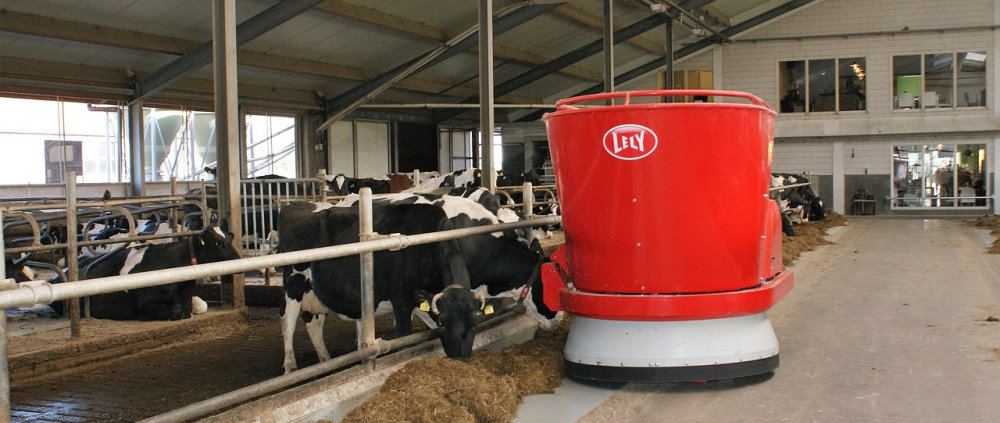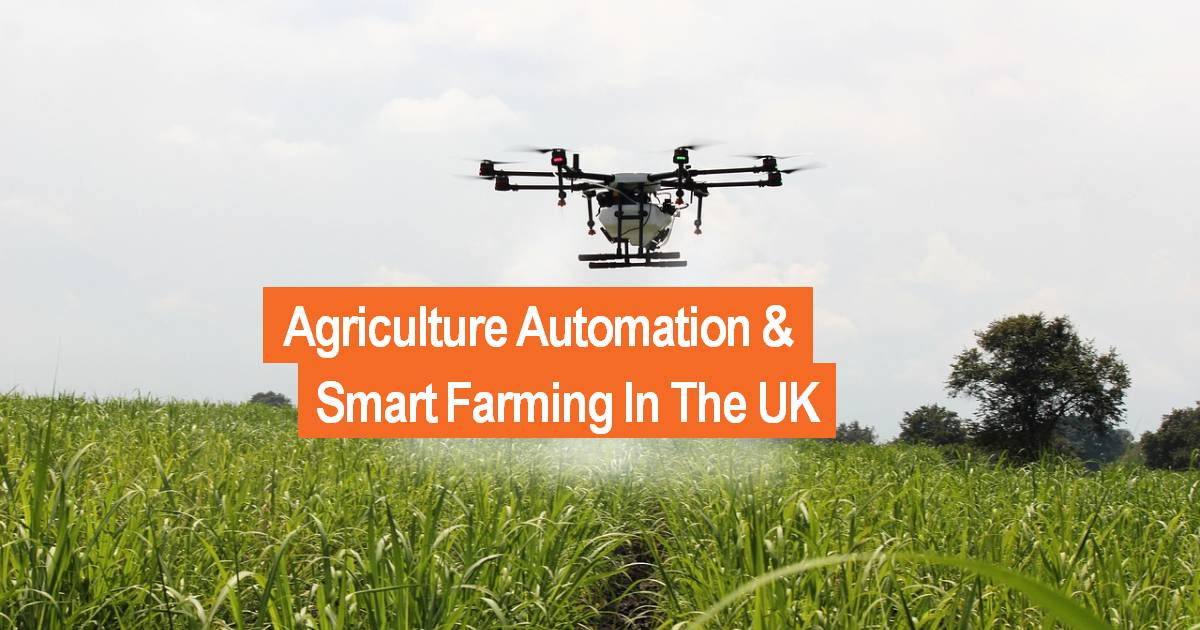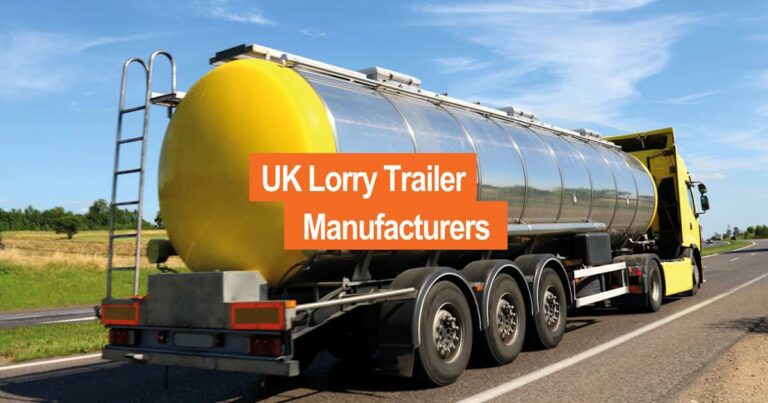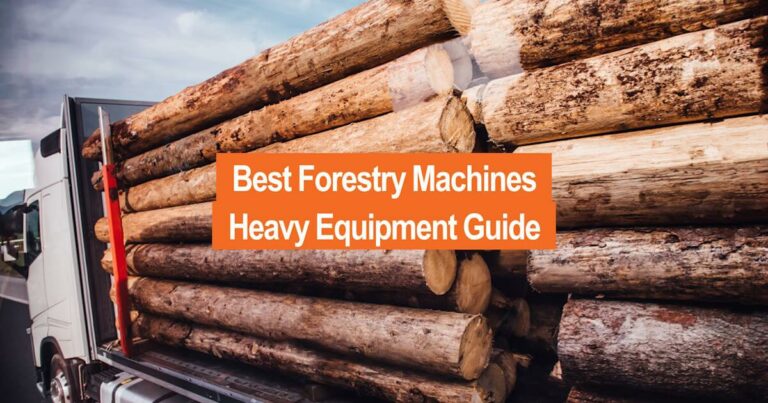Over 70,000 migrant farm workers come to the UK every year to help farmers harvest and process their crops. Without the help of migrant workers from across Europe, millions of tons of produce could be left to rot in the fields.
With travel restrictions in place this year due to Covid-19, UK farmers got a taste of what the future could be like after Brexit if European workers can’t make the trip to the UK.
Farmers have been reliant on workers from across Europe for decades. They help with seasonal harvests and labour-intensive work. The seasonal flow of farm workers has historically been crucial for farmers, but this year harvests have been harder than ever due to the lack of migrant help.
The NFU Asks For Help

The shortage of workers got so bad that the National Farmers Union asked for changes in quarantine regulation for seasonal farmworkers to help encourage more European workers to make the trip.
Despite the plea from farmers to allow more workers into the country, farms had to rely on local volunteers to help harvest crops. News reports surfaced from across the UK of volunteers assisting local farmers to meet their quotas.
While this is undoubtedly heart-warming, it isn’t a long-term solution to a lack of physical workers.
With many businesses closed this year, communities were able to pull together because people could not perform their regular jobs. In future years, we hope not to see a repeat of the mass business closures due to coronavirus. However, the post-Brexit farming community could still be plagued by a lack of migrant farm workers.
What Is The Future After Brexit For Farmers
As the end of the Brexit transition period looms closer and closer, UK farmers are starting to think about how they may be affected.
One of the most critical ways they could be affected by the UK leaving the European Union – is the loss of freedom of movement.
Farmers might experience a dramatic drop in migrant workers willing to travel to the UK because of complicated visa processes.
This could discourage workers who can more easily head to France, Spain or Germany to work on farms. In the months following the Brexit vote, the number of overseas views on a recruiting agency website dropped by 50%. The same period saw an increase in interest in foreign companies.
Foreign work visas take time and money to apply for. Many seasonal workers travel across Europe as the harvests are needed, meaning they don’t have a fixed address. Applying for, and receiving, a working visa may be difficult unless a Brexit deal is reached. According to Forbes, this could mean a 75% cut in the workforce.
Put simply, UK farmers might just find that they just don’t have enough people to get the work done.
Automated Farming Systems & Smart Farming

This shortage of manual labourers may leave farmers with little choice but to turn to machinery to help them out – more specifically, to automated farm systems.
The NFU estimates that for some farmers, manual harvesting can be up to 50% of the farm’s total annual costs – that is a lot of people hours and overheads.
For many farmers harvesting and selling crops equates to 100% of their revenue. So finding an alternative solution is a must. This has resulted in a growing number of farms testing new automation machinery and “smart farming” techniques which will be able to help harvest produce without using manual labour.
Like any new technology, some of the latest machines aren’t ready to enter the market just yet and are still in the trial phases.
However there is good news, as some robotic arms and automatic combine harvester machines are available for farmers to put to use today. Some benefits of using automated machines in place of manual workers include: the machinery can be upgraded to use the latest technology, the machines can operate for longer periods of time and they tend to be more efficient.
New harvesting machines can be programmed to cover large areas much faster than a group of people. Additionally, some can even tell you the yield percentage of a field of wheat, or let the farmer know precisely how much fertilizer needs to be used to achieve maximum yields.
There is more AI (artificial intelligence) being deployed in the machines, so they begin to learn every time they harvest. These machines can be programmed in advance and require minimal human surveillance.
They are fast, accurate and reliable. A recent study found that a raspberry harvesting machine not only selected riper berries than humans, but managed to pick nearly double the number of raspberries.
Automated Farm Equipment & Machinery

Automated farming machines are already becoming popular with farmers across the country. Some machines are already well-developed and are proving fairly common sights on UK farms.
Types of agricultural robots / automated farming systems include:
1. Guidance / Harvesting systems: These systems are the most common automated agricultural system in the UK. The systems can be installed on other machines to automate regular machines. They are popular because they don’t require a new machine. The AI computers can automatically run any electronic machinery if programmed correctly – and if it doesn’t need manual action to operate the equipment.
2. Fruit picking robots: Mainly used for strawberries and ground vegetables, automated fruit machines can identify ripe fruit and weigh it. They can also identify which fruits will be ripe next week so farmers can plan ahead. There are other variations which will pick apples.
3. Watering machines: Automated watering machines can identify which part of a field needs additional water and can change location to adapt to changing conditions. Normally, this equipment is part of an upgraded mobile irrigation system. They also save water by only watering when necessary.
4. Soil sampling: Many farmers use soil analysis to help ensure crops remain healthy. Sampling machines take a wide selection of soil for analysis and provide accurate results. This saves time and effort for farmers as they don’t have to take samples by hand.
5. Sorting machines: Once produce is harvested it needs to be cleaned and packaged ready to leave the farm. Automated sorting machines make this task easier and can pack produce based on weight or size.
6. Weeding machines: Weeding by hand is a laborious task. Automated weeding machines look very like indoor roaming vacuums, but instead of ‘hoovering’ up dirt, they can identify and remove small weeds so fields remain weed free.
7. Scan and spray weeders: For slightly tougher weeds, or for larger areas, automated machines with cameras identify weeds and deliver a concentrated dose of weedkiller directly onto the weed. These machines are very popular because they also benefit the environment by only apply pesticide directly to the weed itself, rather than spraying large areas of land.
8. Seeding machines: Automated seeding machines not only save time but also ensure seeds are dispersed evenly and at the right depth.
9. Analysis drones: Automated drones fly over farms and can identify irregularities in crops and can determine when herds need to be relocated to other pastures.
10. Milking machines: Automated milking machines are becoming more popular. Once the cows are attached to the machine, the machine can determine the health of the cow and can make recommendations based on the quality and quantity of the milk.
Why Are Farmers Not Adopting Automated Farming Quicker?
With so many benefits of automated machines, why aren’t more farmers looking to turn to robots to help them make their life a bit easier?
Well, there are a few reasons why farming processes haven’t already been fully automated:
Firstly, the automated machines are a bit more complicated than an old trusty tractor. This requires experts to train farmers on how to use the machinery in the first place. Ongoing maintenance will require a specialist as well – it’s something a farmer is unlikely to fix with some grease and a wrench.
Secondly, many of the machines are “specialists”, in that they are designed to do only one function, whereas humans are a bit more adaptable.
For example, an automated tomato picking machine cannot then be used to robotically pick cauliflowers or harvest wheat. This means farmers must invest more money in buying a range of specialist automated farm machines.
This is a big red flag for many farmers who are aware that they may need to diversify in the future. However, as the machines become more advanced, they will undoubtedly become more flexible and have multiple functions.
The third reason is cost. When compared to traditional (and old) farming equipment, the new automated machines are more expensive.
Making Agriculture And Farming Automation Affordable
Let’s not get away from the fact that migrant worker shortages will probably continue to be a problem. And the cost of employing these farm workers will increase.
That is why farmers should seriously consider investing in smarter automated farm machinery. Yes, it may seem like a large initial outlay, but the cost benefits and efficiencies will pay for itself.
What is more, UK agricultural finance brokers such as Evangate FS can offer farmers flexible finance options to invest in smart automated machinery. As well as being able to provide loans to purchase new machinery, brokers are often able to source good deals on renting robotic machines.
This allows farmers to reap the benefits of modern technology in the short term while waiting to discover what the eventual outcome of Brexit will be. And more importantly, it will allow farmers to harvest their crops now.
Agriculture finance brokers can help in other ways. For example, they are continually speaking with the manufacturers of robotic/automated machinery, so they know what types of machines are available and what would suit your farm.
Sourcing technology which is this new can be difficult, as the demand may suddenly increase whilst supply is low – this pushes the prices up. Specialist brokers are able to advise farmers on what is worth the money and what still needs developing, that is why you should speak with Evangate FS.
Advantages Of Automation In Agriculture

One advantage for UK farmers is the speed of the advancing technology of autonomous robots for farming.
The sudden decrease in manual workers has led to a sudden increase in research and development of automated agricultural robotics.
The Financial Times reported that there has been a 40% increase in investment in start-up agriculture automation companies since the Covid-19 outbreak meant workers could not travel across Europe.
Technology is making giant strides, meaning that farmers who get ahead of the curve and invest now, can start to become more efficient, produce healthier crops and increase their margins.
But you may ask – what if faster, more efficient machinery comes out?
That is always a risk, even with the humble tractor. This is another reason why rental of an automated machine is likely to become popular.
And even if Brexit does not result in a shortage of workers, many farmers have been made acutely aware of how reliant they are on foreign labour. The result is likely to be a growing interest in automation as a way to protect farms for the future.
Farmers Need To Adopt Automation
Advancing technology means farmers no longer need to be held back when labour is in short supply.
A shortage of workers can lead to massive cash flow issues as farmers fail to harvest crops in time. This means that if there are no workers during the crucial harvesting weeks, farmers can suffer for the rest of the year.
Investing in robotics and automated machinery is a way to future-proof your farm against a worker shortage. As this summer has shown, it isn’t only Brexit which could cause a lack of workers.
With so many finance options available, money shouldn’t be the reason that you don’t invest. With more demand and newer technology coming to the market, it means prices are dropping every day – this is resulting in fully-automated farms (smart farms) becoming a more viable option.
The threat of Brexit and labour shortages has created a whole new demand for robotics. We might be about to witness the explosion of automated farming across the UK.
Everything looks set to change!
If you are interested in exploring automated farming or smart farming, get in touch with Evangate FS today, we might just have a deal that you can’t refuse.




